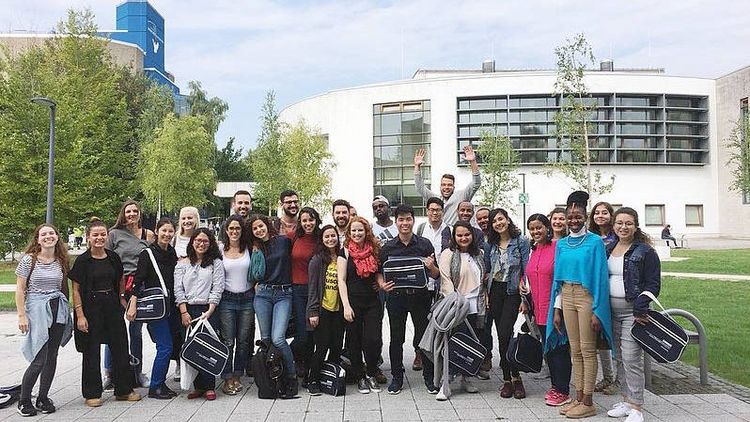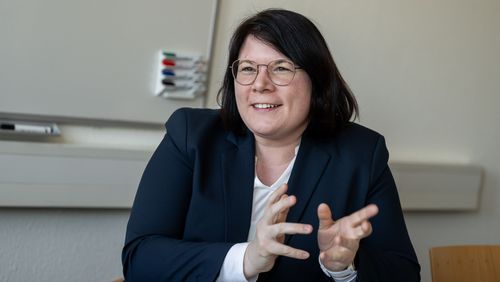Practising intercultural relations
Since 2011, the master programme EMMIR, European Master in Migration and Intercultural Relations, funded by the European Excellence Programme Erasmus Mundus, has been training students from all over the world. Here, four alumni report on their experiences.
Students enrolled in the master's programme, hosted by the University of Oldenburg, learn about theories, concepts and methods of migration research across disciplines and also gain practical experience. In addition to the University of Oldenburg, four European, three African and two Indian partner institutions are involved. A cohort’s students spend the first semester together in Oldenburg, the second at the University of Stavanger (Norway). The students then individually choose a module at one of the nine partner institutions. They complete their studies in the fourth semester with a master's thesis in a freely chosen partner country. Here, four alumni report on their experiences.
Gabriela Yanez Atiencia
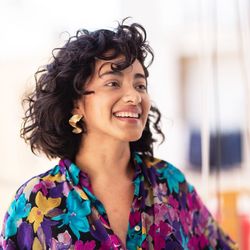
"I come from Ecuador. Even though it’s a small country it harbours many migrants and refugees. When I was little, my aunts and uncles decided to emigrate to Italy or Spain because of the economic crisis in the year 2000. As a child, I found that disturbing because before that our family had always been together. Today, as an anthropologist I continue to reflect on what mobility means. The EMMIR curriculum immediately appealed to me due to its diverse and non-traditional fields of research, something not that common in a master's in Migrations Studies. I have always been interested in art-based research, that is how art and research can merge to innovate social research. EMMIR, through its partnership with multiple universities, not only allowed me to develop my interests in this field but also broaden my scholarly perspective in relation to Africa and Asia. Thanks to EMMIR I have friends from all over the world. In our discussions, we practised intercultural relations in real life. I have learned to be more observant and patient, and not to judge quickly. These days, to achieve something on a political level it is important more than ever to have different perspectives, create dialogue and avoid polarization. Currently, I am working part-time as part of the EMMIR team in order to welcome a new generation of students as I look for opportunities to contribute further to migration studies and education".
Daniel Braga Nascimento
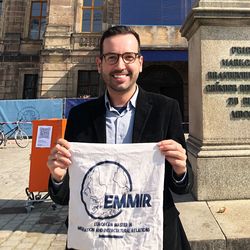
"I decided to study migration because it is an interdisciplinary field. Although I am a jurist, studying at EMMIR allowed me to navigate debates on sociology, psychology, international relations, anthropology, history. And this exactly enriched my general understanding of why people migrate (or not), how states define their goals on terms of opening or closing doors and the importance of migration scholars in defining debates and influencing policymaking. By enrolling in the EMMIR I had the unique possibility of studying in four different countries during the two years of the programme. There is no other programme in migration studies with so much mobility and so many possibilities of networking and getting involved with different projects during the master studies. Migration needs evidence-based solutions and respect to international human rights law and treaties. These two are the challenges of our time."
Anne-Kathrin Schulz
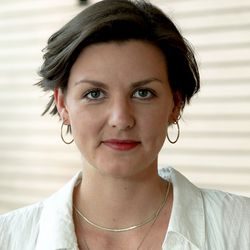
"I was confronted with the topic of migration for the first time in 2015/16 during the so-called migration crisis. I found the way it was reported in the media very upsetting. When I was in South Africa for my Bachelor's degree - I had studied for a teaching degree in Oldenburg - I decided to integrate the intercultural more into my studies. So EMMIR as an international Master's programme naturally appealed to me. It was very inspiring to study for two years together with 30 people from different backgrounds. You learn an incredible amount from each other and also about yourself. You question your own position, your own thinking. Migrants are, and this is a universal phenomenon, often excluded from the society they live in. Access to education, to health is more difficult. These are really basic things. I think it is important to recognise that most immigrants need special support. With my knowledge and my experience I have gained abroad, I would like to contribute to this."
Oliver Wedemeyer
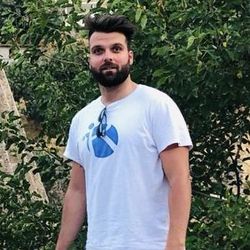
"I have often experienced that people with and without a migration background are not treated equally. That's what motivated me. After my bachelor's degree in social and educational sciences, I first worked with unaccompanied young refugees. EMMIR also appealed to me because of its multinationality. I found the idea of learning from teachers and students of different nationalities and social backgrounds exciting. Many EMMIR students are actively involved in society, which has greatly enriched our discussions. During my internship in Iraq, I met Yazidi refugees who had written poems about their situation as internally displaced persons. These people inspired me a lot. For the future, I would like our society to be more aware of migration processes that are otherwise not visible - for example, the approximately 4.2 million internally displaced persons in Yemen. And that the state reduces the inequality with which it treats different groups of refugees."
Topics
- Astronomy
- Biology
- Botanical garden
- Chemistry
- Computing Science
- Cooperations
- Covid
- Culture
- Dutch Studies
- Early Career
- Economics
- Educational Sciences
- Energy
- Energy Research
- Environmental Sciences
- Equal opportunities
- German Studies
- Graduate academy
- Health Services Research
- Higher Education Policy
- History
- Human Medicine
- International affairs
- Marine Sciences
- Material Culture
- Medical ethics
- Medical Physics and Acoustics
- Music
- Neuroscience
- People
- Philosophy
- Physics
- Presidential Board
- Psychology
- Research
- Slavic Studies
- Social Sciences
- Special Needs Education
- Sport Science
- Study Affairs
- Sustainability
- Teacher Education
- Theology
- Transfer
- University Medicine
- Ukraine
- Wind Physics

